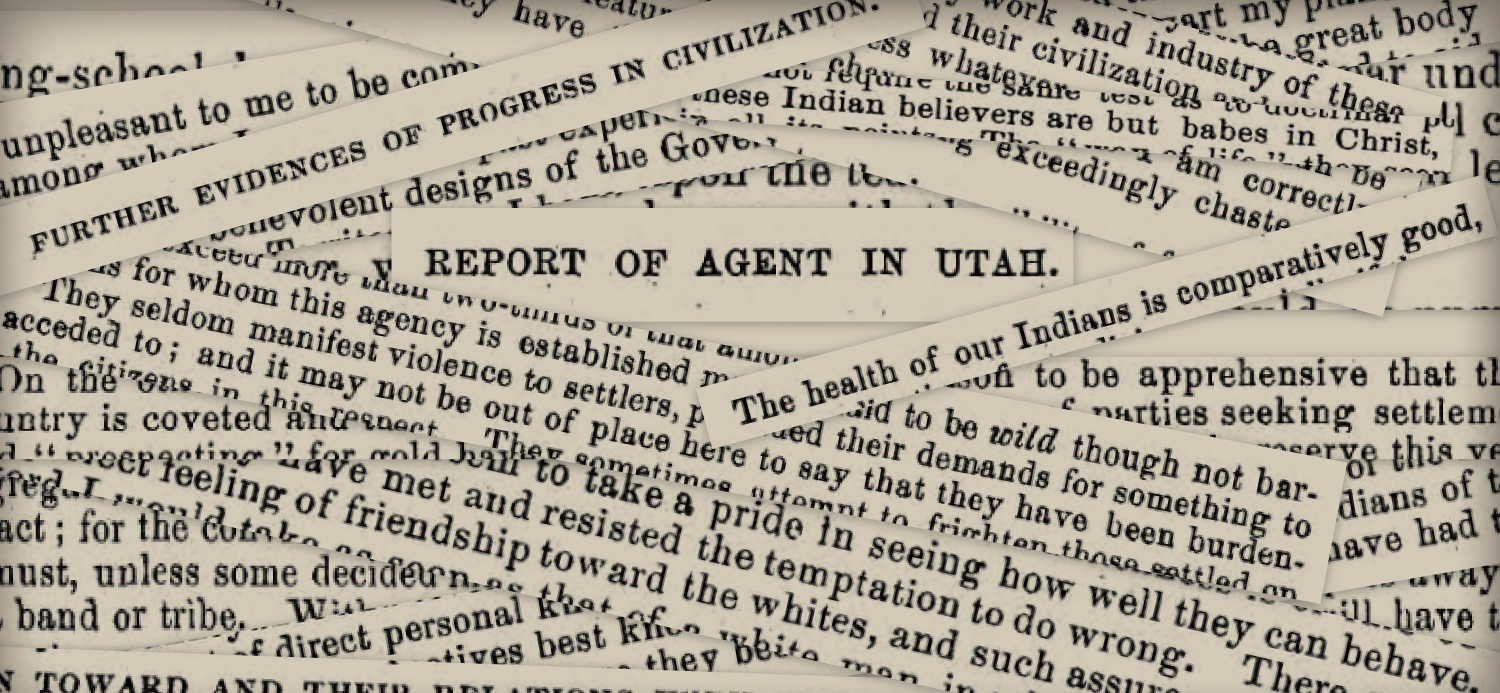

These excerpts from reports filed by Indian agents describe how the Utah boarding schools worked year by year to assimilate children.
They also document decades of resistance by Ute families and students who frustrated that goal — from refusing to enroll students, to running away, to continuing to speak their own language, to maintaining their bonds and traditions.
Many of the reports contain racist language and stereotypes.
In the school excerpts, we’ve included superintendents’ reports when they were available and additional reporting.
Indian Agent J.J. (John James) Critchlow was the first Uintah Valley agent to attempt opening a school for the Utes, starting with a day school in 1874. It would open and close, for lack of funds and interest, as Critchlow argued unsuccessfully for the funds to open a boarding school.
1874: “We hope to have … our school in operation this fall.”
School excerpts | Full report scan
1875: “We must have another building, for boarding and lodging purposes.”
School excerpts | Full report scan
1876: “I did not think the results justified the expense. I … closed the school.”
School excerpts | Full report scan
1877: “Our school has been suspended … for the want of funds.”
School excerpts | Full report scan
1878: “I sincerely hope … that greater facilities may be afforded for their moral training.”
School excerpts | Full report scan
1879: “... Best results can only be secured by a boarding industrial school, where the children … can be separated from their families.”
School excerpts | Full report scan
Agent J. J. Critchlow succeeded in convincing the Presbyterian Board of Missions to open and run a boarding-school on the Uintah Valley reservation — but the church’s involvement would be short-lived. The new school opened in January 1881, and by 1883, the federal government had taken over. This decade saw a more rapid turnover of agents after Critchlow’s departure in 1883.
1880: “We … hope to be ready by the 1st of November to inaugurate our school.”
School excerpts | Full report scan
1881: “We … had certainly failed.”
School excerpts | Full report scan
1882: “I am somewhat at a loss to know … whether to call it a success or a failure.”
This was Critchlow’s last year as agent.
School excerpts | Full report scan
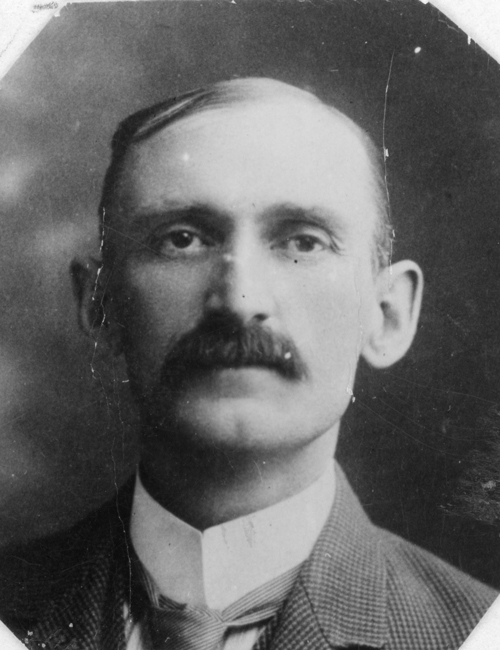
1883: “Much prejudice exists … against the children attending school.”
Elisha W. Davis, new Indian agent
School excerpts | Full report scan
1884: “The pupils made gratifying progress … They had regular hours for work.”
School excerpts | Full report scan
1885: “They are so intimately connected with the tribe, even when they are at school.”
School excerpts | Full report scan
1886: The Utes’ “wishes in this respect should not be consulted.”
Eugene E. White, special agent temporarily in charge, brought a harsher outlook.
School excerpts | Full report scan
1887: “More room and better buildings are needed.”
New Indian Agent T.A. (Timothy) Byrnes
School excerpts | Full report scan
1888: “The building is in a very dilapidated condition; in fact it is scarcely habitable.”
With: Superintendent Fannie A. Weeks: “Forty-four pupils were crowded into it, although its capacity is for only twenty-five.”
School excerpts | Full report scan
1889: “The building is a miserable dilapidated structure.”
This is Byrnes’ last year as agent.
School excerpts | Full report scan
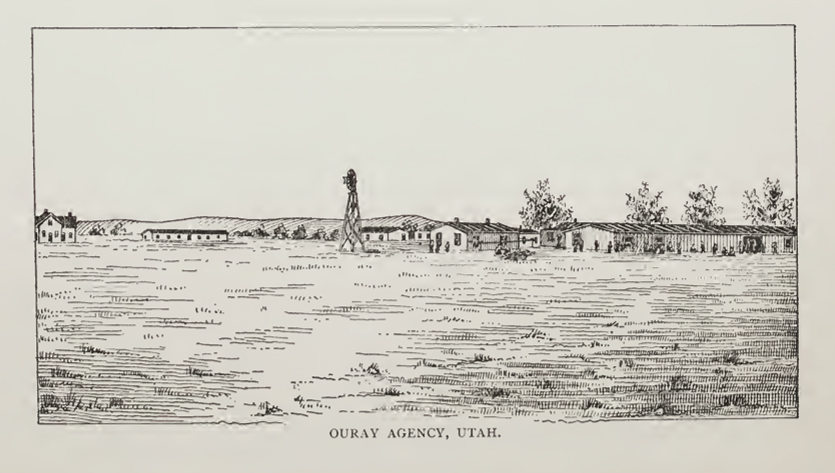
Efforts to get Ute children into school intensified this decade, as new buildings were added at the Uintah school in Whiterocks and a second boarding school opened for the Uncompahgre band. But parents continued to resist sending their children.
1890: Staff “labor under great difficulties” with “dilapidated” Uintah school building.
New Indian Agent Robert Waugh
School excerpts | Full report scan
1891: “Two large and commodious buildings … are nearing completion” at Uintah.
School excerpts | Full report scan
1892: “It remains to be seen how well this [Ouray] school will be sustained with children.”
School excerpts | Full report scan
1893: “The Ute has much yet to learn in his estimate of schools.”
This was the year the Ouray Boarding School opened, and was Robert Waugh’s last year as agent.
School excerpts | Full report scan
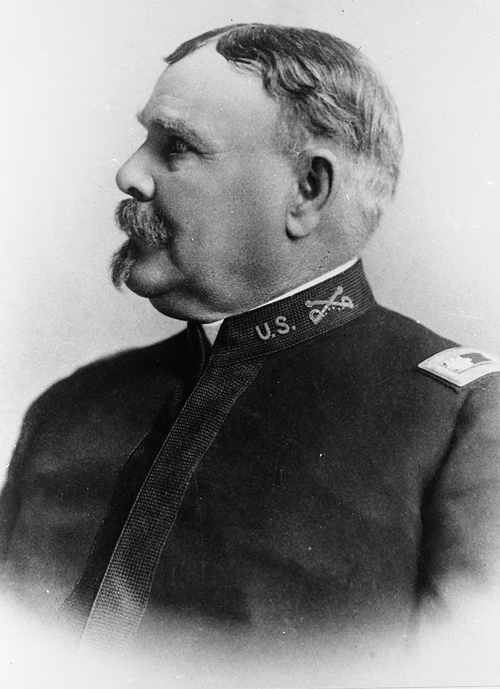
1894: “They are slow to appreciate school privileges that have been provided for them.”
New Indian Agent Major James F. Randlett
School excerpts | Full report scan
1895: “The hope of civilizing these Utes centers in the reservation schools.”
School excerpts | Full report scan
1896: Children “visit their homes only during vacation … Runaways have been promptly returned.”
School excerpts | Full report scan
1897: “Even the smallest girls were required to do such work as they could.”
This was James F. Randlett’s last year as agent.
School excerpts | Full report scan
1898: “Some of the parents object to their children doing any work unless they receive pay.”
James F. Randlett had been succeeded in July 1897 by another Army captain, who was quickly replaced in turn by U.S. Army Captain George A. Cornish.
School excerpts | Full report scan
1899: School attendance “is still far from satisfactory.”
H.P. Myton took over as the new Indian agent in October 1898.
School excerpts | Full report scan
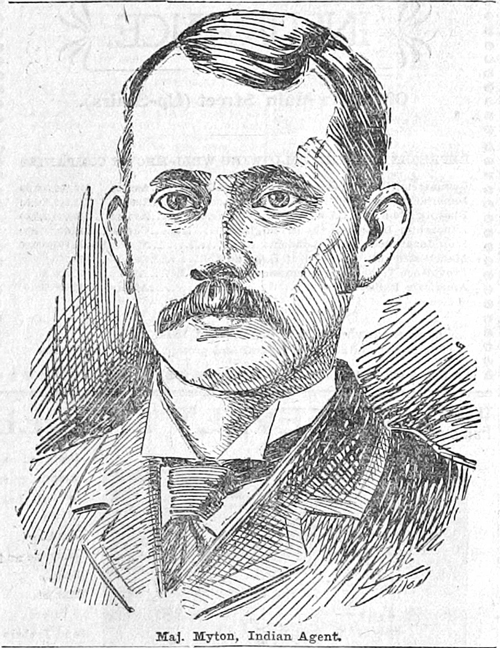
The Ouray school at Randlett was abandoned this decade, with all Utes encouraged to send their children to Whiterocks. A few were sent to boarding schools in other states, including the flagship Carlisle Indian Industrial School in Pennsylvania.
1900: “Rounding up the children.”
School excerpts | Full report scan
1901: “Then in December came the catastrophe.”
School excerpts | Full report scan
1902: “It is very difficult to keep them from talking their own language.”
This is Myton’s last year as agent.
School excerpts | Full report scan
1903: New agent’s complaint: “the unsubdued attitude of the Utes.”
Capt. W.A. Mercer took over as the new agent.
School excerpts | Full report scan
1904: “It is a very difficult task to get these children in school.”
Another new Indian agent, C. G. Hall, took over in July 1904.
School excerpts | Full report scan
1905: Ouray Boarding School: “Steps are now being taken to abandon this school.”
School excerpts | Full report scan
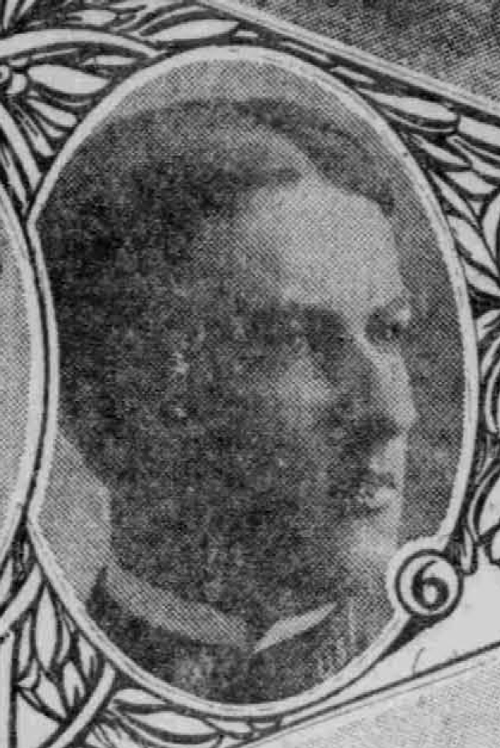
1906: The opening of the reservation “is bringing radical changes.”
C. G. Hall
School excerpts | Full report scan
This was the last year the federal government published the individual reports from agents and school superintendents; for the next two two decades and more, national reports would include only statistics from individual schools, with occasional changes in the data collected.